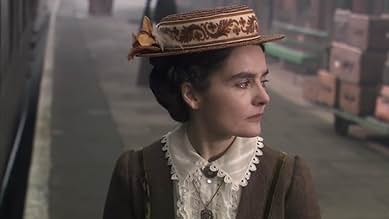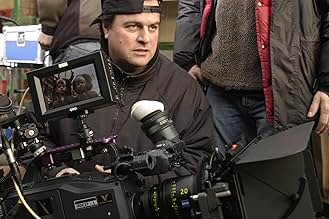In reference to tarmcgator's comment of December 2005, I have only to add to his generally excellent review of this production that while I fully agree that we should not rewrite history in order to delude young women into believing that our sex's role was more instrumental than it actually was in the scientific processes of history, I do commend Johnstone and Bodanis for mentioning some roles women did play in the development of this enormous scientific discovery. While I myself am not a scientist, I have long been interested in quantum physics, but had never heard of du Châtelet or Meitner before seeing this production. Bravo to Dr. Bodanis for bringing their names - and their work, however small a contribution it may have been in truth - into light in his book (and now this t.v. production).
As for the problem of rewriting history in order to assuage minorities, well, I understand Mr. Tarmcgator's taking issue in this case with the (possibly) fallacious reinvention of female scientists' roles in order to encourage young women of today to go into the sciences. I think we would be far better to discuss the possible reasons that young women are not going into or staying in the sciences as readily as men. This, however, is the one of the "giant" questions that we so far cannot answer - just seeing the reaction to Harvard president Lawrence H. Summers' speech last year (http://www.president.harvard.edu/speeches/2005/nber.html) is evidence of that (as an aside, I'm not about to say that he was horribly misguided in the questions he posed, which I think need badly to be discussed, but that perhaps - as has been widely suggested, in fact - he jumped to conclusions regarding the supposed greater weight of the role of genetics when comparing the sexes' abilities in mathematics).
No, I do not want to be lied to about women's roles in history (however dreary and depressing they usually turn out to be), but to quote you: "Emilie du Châtelet was no doubt a brilliant woman who tried to make the most of the limited intellectual opportunities that women could pursue in early 18th-century France; but one wonders how much more influential she was on the course of the development of physics than, say, Newton or Leibniz." One wonders indeed, sir; unfortunately, we will never know how great she would have been had she had the chance to attain the same education and encouragement as her male peers. All other things being equal, why couldn't she have been as great a mind as Newton or Liebniz? I, as a woman, was inspired by "E=mc²" to hope that she could have been. The authors seem to be attempting to give her this due, and perhaps in exaggerating the role that she did have, they are merely paying homage to the role she might have had, had she not been a prisoner to the time in which she lived. Can you honestly begrudge them this effort?





























